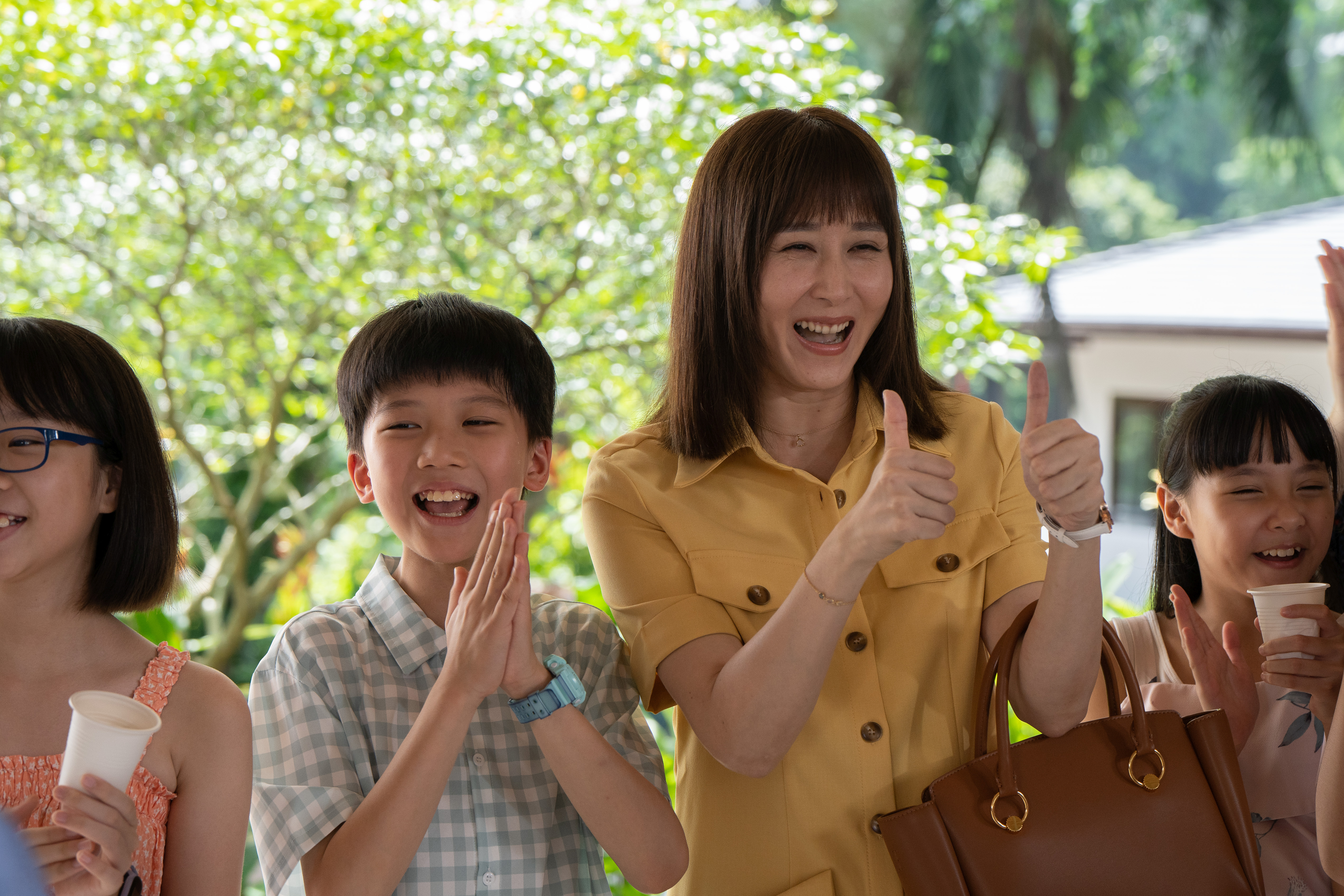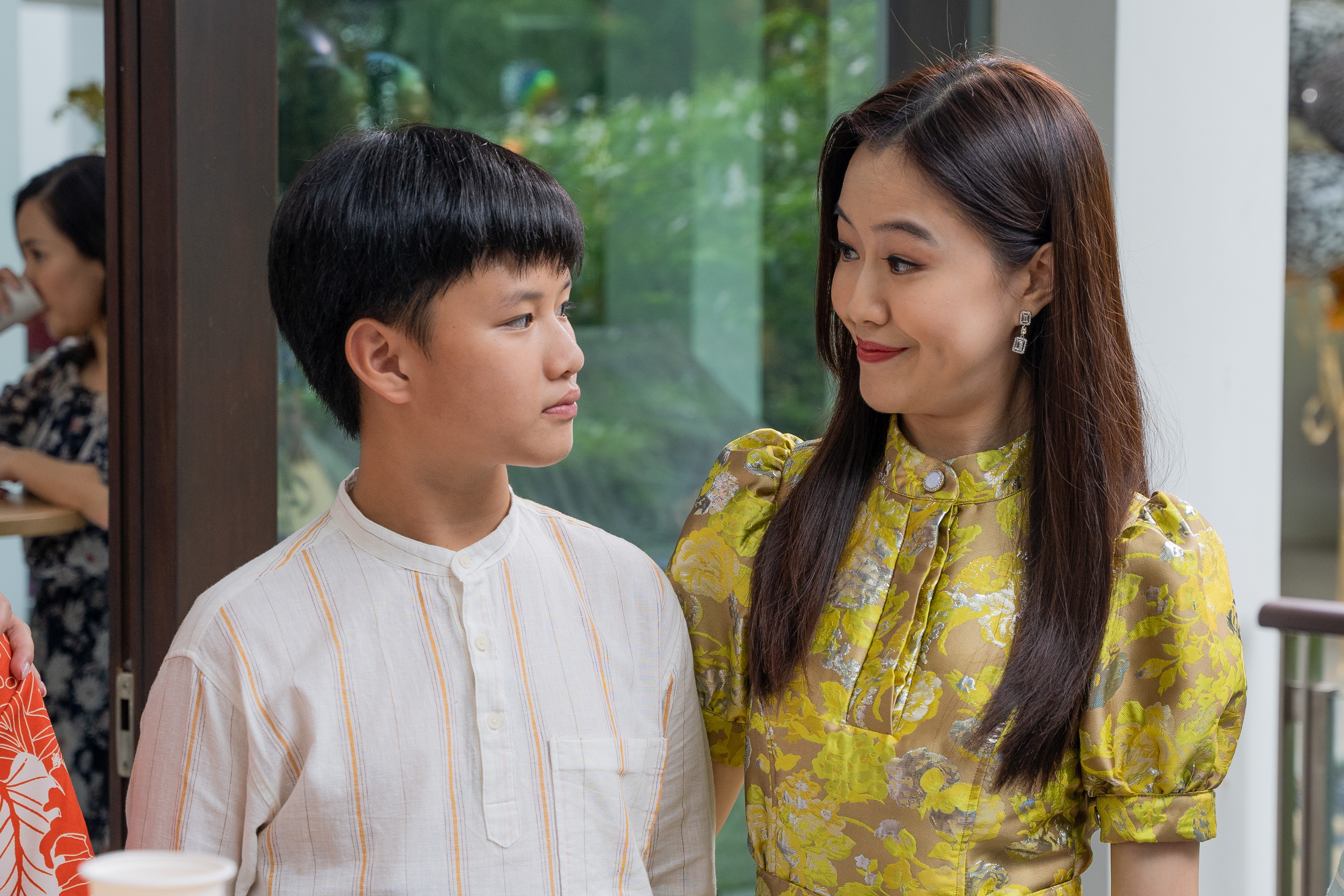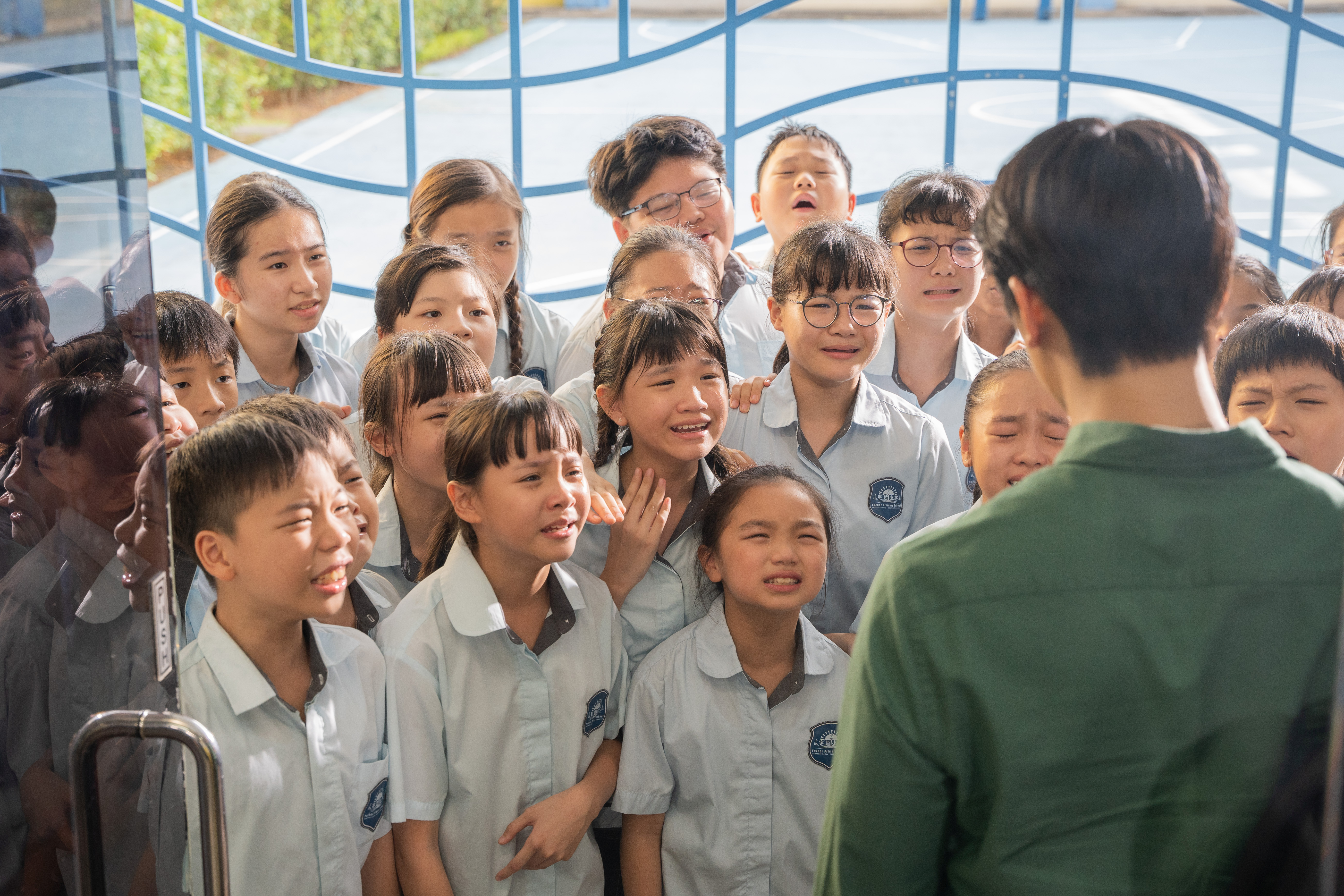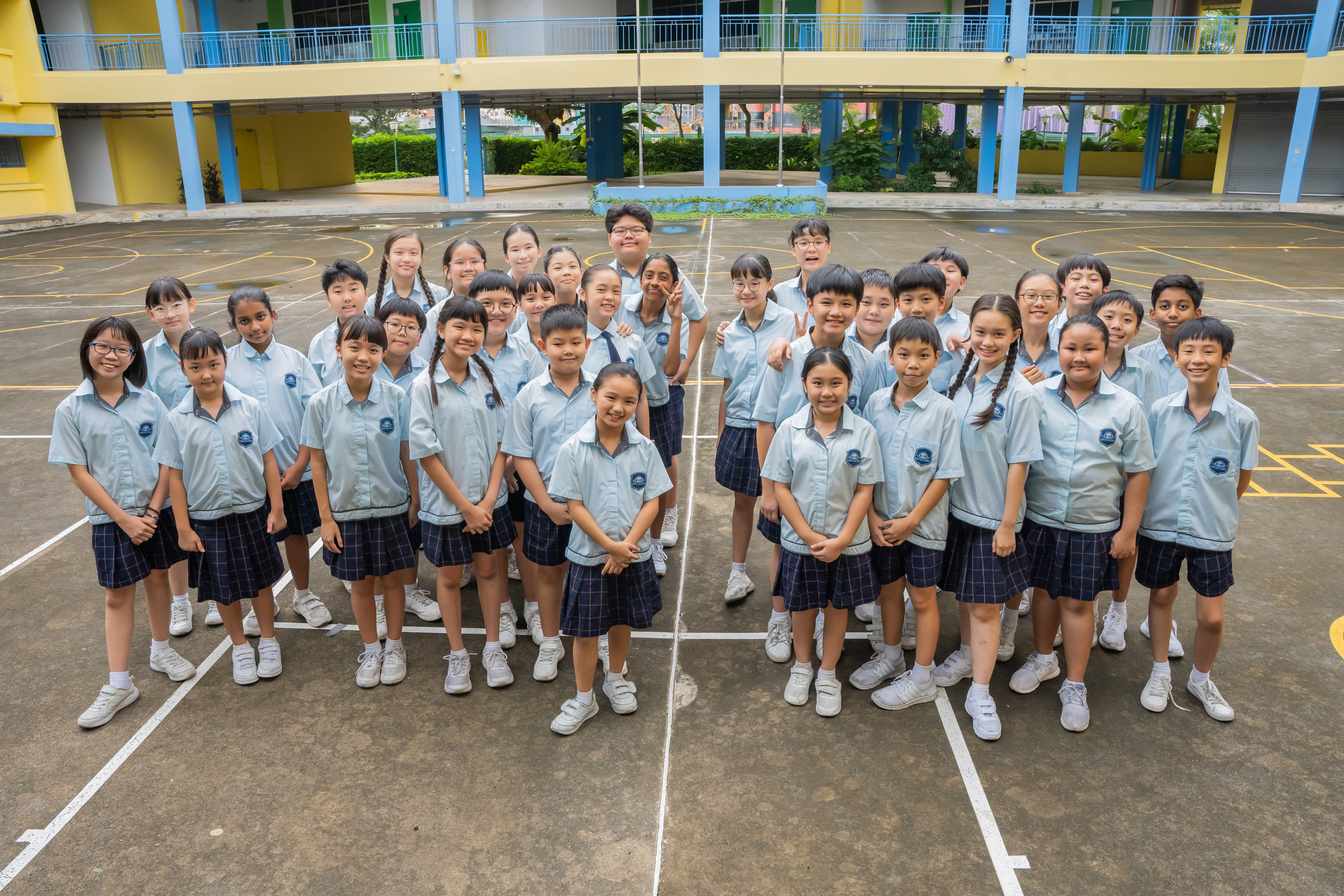 I watched "I Not Stupid 3" for work. My millennial boss has been talking about the nostalgia factor that draws her into it, and I don't quite get her excitement — but her review is for another day.
I watched "I Not Stupid 3" for work. My millennial boss has been talking about the nostalgia factor that draws her into it, and I don't quite get her excitement — but her review is for another day.
Though I haven't watched the two movies that preceded this one, I've heard many good things about them prior to entering the cinema, and had pretty high hopes for the third.
I am, however, familiar with other Jack Neo films like the "Ah Boys to Men" and "Money No Enough" series.
Trying my best to shed the lens that came with me being a Literature major, I set aside whatever preconceived notions I had towards Jack Neo's works and went in with an open mind.
I did, however, had expectations as to what I'd like to see discussed in the film, especially because of all the changes our local education scene has seen since the last "I Not Stupid" movie.
As you can probably already tell, I was quite disappointed.
Relatable, but not really
Unlike your usual Jack Neo movie, this one seemed to have lost a lot of its Singaporean flavour.
Though this might not necessarily be a bad thing — I’m sure the Singlish/Hokkien jokes are getting old for many of us at this point — it did make the film feel a little off-base.
For one, a considerable portion of the film was executed in English, marking a shift from the way Neo’s movies are usually carried out.
The introduction of Chinese talents Hu Jing and Zhou Yuchen, who play a mother-son pair, also made the parts of the film that were executed in Chinese, a little too Chinese.
 Photo via mm2 Entertainment.
Photo via mm2 Entertainment.
Although this was nicely juxtaposed against the Western accent taken on by Jae Liew, who plays an overbearing tiger mum in the movie, and effectively amped up the tension between the two mums, it did take away from the “Singaporean-ness” I personally know and love in a Jack Neo film.
Given that the show is meant to be a reflection of Singapore’s education scene — and while I could relate to many of the experiences characters went through in the film — I felt that the movie as a whole didn't have that Singaporean spirit to it.
What might have tipped the scales for me would have been if Neo had at least retained some of the comedic flair typical of his works: For example, I've never been through National Service, but found myself empathising with the characters of “Ah Boys to Men”.
Perhaps because of the nature of the film, perhaps because Neo decided to take a more mature stance with this film compared to his previous works; this movie simply wasn’t that funny.
Trying to achieve too many things at once
It might just be me, but I did feel like Neo tried to introduce too many concepts at once, resulting in many half-cooked subplots.
One example is the dyslexia suffered by the protagonist Zihao (played by Zhou Yuchen), which was hinted at in the film’s trailer and built up throughout the film. This was a sub-theme I would have loved to see further developed, especially because the struggles of children with learning disabilities is still uncharted territory for our local film scene.
 Photo via mm2 Entertainment.
Photo via mm2 Entertainment.
However, the topic was only briefly touched upon by Neo: Zihao’s disability is discovered by his Math teacher Mr Lee (played by Glenn Yong), who then alerts Zihao’s mother of the matter. They cry and hug, and the topic is never again raised.
And I find that a pity, because there is a lot more education about the subject that could've been weaved into the story.
Another storyline I would have liked to see in greater detail was that of the “fishball noodle family”, played by mother-son pair Xixi Lim and Joseph Ng. This really had the potential to spark discussions on the importance of education in determining one’s standing in life, so it's rather wasted that they weren’t given more screen time, and that the storyline unfolded rather simplistically.
 Photo via mm2 Entertainment.
Photo via mm2 Entertainment.
TLDR, it just felt like Neo was trying to cover too much ground at once.
Kinda cliche
It seems like all Jack Neo films have to end with some character landing up in the hospital.
This time, the unlucky victim was one of the protagonists Jayden, played by child actor Camans Kong.
Though the movie initially had the potential to spark meaningful dialogue about the pressure some parents place on their children to attain academic excellence, it felt to me like all that went away with the car crash scene.
For a film meant to reflect the harsh realities of Asian parenting, I would have expected a resolution closer to how such tensions between children and their parents would have played out in reality, such as Jayden experiencing an inevitable mental breakdown.
Instead, Neo not only overly dramatised the conflict by having Jayden’s tiger mum only come to her senses after her son gets run down by a car, but this also seemed the easy way out of disentangling the many intricacies embedded in mother-son relationships like theirs.
 Photo via mm2 Entertainment.
Photo via mm2 Entertainment.
Additionally, while the overly invested young teacher is a character I love to see in school films — albeit a cliche one — I felt like Yong’s role wasn’t really properly executed.
On top of unpacking the relationships between the two lead children and their mothers, Neo also attempts to build a rapport between the students and their teacher. However, as the film focused predominantly on the former, Mr Lee’s resignation towards the end of the film didn’t really hit the audience as hard as Neo probably intended, because the audience hadn’t really formed an attachment with him to begin with.
 Photo via mm2 Entertainment.
Photo via mm2 Entertainment.
Credit where it’s due
Despite my criticisms of the film above, it is undeniable that this is one of Neo’s better works in recent years.
Personally, I appreciated the little details Neo weaved into the set, an example being the countdown to PSLE on the classroom’s whiteboard, which would slowly decrease as the movie progressed.
The passing down of the examination scripts down the rows of tables, the teachers obnoxiously requesting for the students to repeat their greetings, even the little stickers at the top right corner of each student’s desk that reflected their particulars as they took their PSLE examinations – these were all tidbits I enjoyed seeing, that enhanced my movie experience.
 Photo via mm2 Entertainment.
Photo via mm2 Entertainment.
It was also later revealed that Liew’s character found her treatment of Jayden justified because that too was how she was raised. This introduction of intergenerational trauma played especially well with the film’s overarching theme of Asian parenting, and perhaps offered a form of validation for many individuals with similar experiences.
"I Not Stupid 3" is now showing in local cinemas.
Top photos from mm2 Entertainment.
If you like what you read, follow us on Facebook, Instagram, Twitter and Telegram to get the latest updates.


